 The ONS released the first estimate for GDP Q3 this week. Growth in the period from July to September was up by 2.3% year on year, compared to 2.0% in the first half of the year. The leisure sector continues to drive the service sector recovery. Manufacturing growth increased by just 0.4%. Construction output fell by -1.4%, largely as a result of public sector cutbacks. Service sector growth increased by 3%. The leisure sector, retail, hotels and restaurants increased by 5%! Transport, storage and communications increased by 4%. Business services increased by 2.6%. The service sector is booming. Service sector inflation is above target. The Bank of England assumed growth of just 1% over the period, hence the early move to cut rates and expand Q.E. A premature move, now exposed as we explained at the time. So what does this mean for the rest of the year? For the year as a whole we expect growth of 2.1%. In 2017 we expect growth to slow slightly but not by much. Our 1.8% expectation could be boosted by further household spending and private sector investment. The next move in U.K rates will be up. Gilt yields increased to 1.3% at the end of last week. Yields are heading higher as inflation is set to rise. There will be no further cut in base rates. The QE expansion should be put on hold, especially in the corporate bond market. All eyes on the FED ... the decision made easier by strong U.S. growth figures announced on Friday ... U.S growth up by 2.9% in Q3 ... The U.S. Bureau of Economic Analysis released the first estimate of GDP on Friday. Real gross domestic product increased at an annual rate of 2.9 percent in the third quarter of 2016. In the second quarter, real GDP increased by just 1.4 percent. On the face of it, tremendous growth. There should be no doubt about a rate rise in the U.S. before the end of the year. The headline rate is based on a quarterly growth rate of 0.7% which is then "annualised". The underlying growth rate, year on year is a more sober 1.5%. Nevertheless, we expect strong growth of 2% into the final quarter of the year. The overall U.S. growth will be 1.6% in 2016, increasing to over 2% next year. In the U.S. as in the U.K, consumers continue to boost spending. Additional contributions from inventory investment and exports assisted the growth performance. Around the world, the recovery continues. Growth is returning to the E.U. Spain will grow by over 3% this year. Gilt and U.S bond yields are providing the marker to suggest the growth and inflation cycle is returning. The Bank of England is out of step. The model and perceptions fundamentally flawed. Speculation is rising the Governor will not stay the full term. Returning to the land of the Lune and the Loonie, the announcement could be made next week. Nissan deal boost hopes ... The Nissan deal boosts hopes the Brexit trauma will not be as severe as feared for the motor industry at least. No cheque book involved, the accommodation will ensure investment plans will go ahead for the Qashqai and the X-trail. Toyota announced investment plans will continue despite the Article 50 uncertainty. Deals for all in the SMMT are surely set to follow. Sectors at risk post Brexit include Higher education, Motor, Aerospace, Big Pharma and the Financial Services Sector. Much is to be done, if the shock to the economy is to be mitigated. Tough negotiations lie ahead. The decisions on Nissan, Hinkley and Heathrow will restore some confidence in the May administration. Now is the time for clarity on EU nationals working in the U.K. Time to end the squeeze on student numbers. Time for clarity on immigration needs generally. As for markets, the rise in gilt yields will secure the kindness of strangers. Sterling is oversold and set to rise against the Euro at least. The Bank is set to reveal a revised stance on monetary policy and interest rates specifically ... So what happened to Markets? Markets, were mixed - The Dow closed up at 18,168 from 18,109. The FTSE closed at 6,996 from 7,020. Sterling was down against the Dollar to $1.216 from $1.221 and down against the Euro to €1.111 from €1.123. The Euro rallied against the Dollar to 1.094 from 1.087. Oil Price Brent Crude closed at $49.95 from $51.67 The average price in October last year was $48.43. UK Gilts - yields moved up. UK Ten year gilt yields closed at 1.27 from 1.07. US Treasury yields moved to 1.85 from 1.74. Gold closed at $1,267 from $1,2651. John That's all for this week ... if you enjoy The Saturday Economist .. JOIN THE SATURDAY ECONOMIST CLUB as an INDIVIDUAL member from just £40 a year. Just click to sign up. Special reports, Survey Results and the Quarterly Economic Outlook are made available to members and sponsors. Join The Saturday Economist Club as an Individual or Corporate Member ... © 2016 John Ashcroft and Company, Economics, Strategy and Social Media, experience worth sharing. ______________________________________________________________________________________________________________ The material is based upon information which we consider to be reliable but we do not represent that it is accurate or complete and it should not be relied upon as such. We accept no liability for errors, or omissions of opinion or fact. In particular, no reliance should be placed on the comments on trends in financial markets. The receipt of this email should not be construed as the giving of advice relating to finance or investment.. ______________________________________________________________________________________________________________ If you do not wish to receive any further Saturday Economist updates, please unsubscribe using the buttons below or drop me an email at [email protected]. If you enjoy the content, why not forward to a friend, the can sign up here ... _______________________________________________________________________________________ For details of our Privacy Policy and our Terms and Conditions check out our main web site. John Ashcroft and Company.com _______________________________________________________________________________________________________________ Copyright © 2016 The Saturday Economist, All rights reserved. You are receiving this email as a member of the Saturday Economist Mailing List. You may have joined the list from Linkedin, Facebook Google+ or one of the related web sites. Our mailing address is: The Saturday Economist, Tower 12, Spinningfields,Manchester, Eng M3 3BZ, United Kingdom
0 Comments
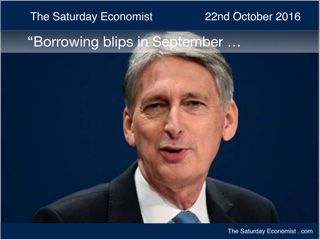 Borrowing blips in September ... Public Sector borrowing in September was £10.6 billion compared to £9.3 billion in the prior year. For the year as a whole the deficit was £45.5 billion compared to £47.7 billion in the first half of last year. The out turn was much worse than expected. A disappointment to Treasury officials as they polish up the Autumn Statement due next month. In August, it was all so different. Revenues were increasing as spending was held under tight control. We were confident for the year borrowing would fall to around £65 billion. Now it would appear £70 billion will be a tough target for the financial year. The OBR had been projecting a fall to around £55.5 in March this year. Expect a significant revision to borrowing in the OBR revised forecasts due next month. Is the September figure just a blip? Highly probable! Tax receipts in the month were up by just 2.6%. Sluggish VAT receipts and a fall in corporation tax revenues were to blame. The ONS was at a loss to explain the drop in corporation tax revenues by almost 9%. Either way, the Chancellor will have little to give away in the Autumn statement. Hopes of a significant infrastructure boost have already been suppressed. The latest borrowing figures will ensure shovels, at the ready, will be back on the rack. Prime Minister sees red ... The Chancellor also received a put down from the Prime Minister this week. Phillip Hammond had suggested student numbers should be taken out of the immigration stats. A logical and total sensible proposal endorsed by the further education sector. According to the Daily Express, Downing Street mandarins were gripped by 24 hours of farcical confusion over what the Government's official policy was. Mrs May is said to have personally stepped in to veto the change in policy. The Lady sees red and sensible proposals to address the immigration issues are dead. Last week, we warned inflation is set to rise significantly and within months. We didn't have long to wait. The ONS released the latest inflation figures on Tuesday. Headline CPI inflation increased to 1% in September. Service sector inflation moderated slightly to 2.5%. The rate of fall of goods prices slowed to -0.5%. Manufacturing output prices increased to 1.2% as import costs increased by over 7%. Expect further rises in the months ahead, with a significant rise in the first quarter next year. Faced with rising costs and a tough pay round, businesses will have some difficult pricing decisions as the "Marmite" debate demonstrates. So what of earnings and employment ... The latest earnings data continue to suggest earning are subdued despite the strength of the jobs market. Overall earnings growth was just 2.3% despite near wage 5% growth in the construction sector. The claimant count in September was 776.4 thousand, a rate of 2.3%. The number of vacancies in the economy was almost 750,000. The number of jobs available equals the number of people on the claimant count register. That's near full employment. The number of people in work increased to 31.8 million, up by 460,000 compared to last year. The unemployment rate fell to 4.9%. That's lower than pre recession levels in 2007/8. Earnings are set to rise as the job squeeze continues and real earnings are put under pressure. An interest rate rise would trigger the earnings increase. Life on Planet ZIRP has many strange effects, including subdued earnings growth. Retail Sales data was also released this week. Volumes increased by 4.1% in September as values increased by 2.9%. On line sales volumes increased by 22%. The proportion of internet sales increased to 15% in the month. By 2020, we expect 20% of non fuel retail sales to be on line. It's a huge squeeze on high streets and retail parks. Lidl is facing the squeeze as Tesco fights back. What would happen if Marmite was offered direct at the push of a button, or a call from the fridge? Love it or hate it, digital disruption and the internet of things offer further big changes in the years ahead in the retail sector and elsewhere. So what happened to Markets? Markets, were down slightly - The Dow closed at 18,109 from 18,212. The FTSE closed at 7,020 from 7,044. Sterling was steady against the Dollar to $1.221 from $1.220 and up against the Euro to €1.123 from €1.110. The Euro fell further against the Dollar to 1.087 from 1.099. Oil Price Brent Crude closed at $51.67 from $51.69 The average price in October last year was $48.43. UK Gilts - yields moved down slightly. UK Ten year gilt yields closed at 1.07 from 1.10. US Treasury yields moved to 1.74 from 1.70. Gold closed at $1,265 from $1,251. John That's all for this week ... if you enjoy The Saturday Economist .. JOIN THE SATURDAY ECONOMIST CLUB as an INDIVIDUAL member from just £40 a year. Check out the link for lots of options to get involved. Special reports, Survey Results and the Quarterly Economic Outlook are made available to members and sponsors. Our next Economics Quarterly Presentation is on the 8th November at KPMG Manchester. Over 100 now on the list. Join the Club to guarantee your place! Join The Saturday Economist Club as an Individual or Corporate Member ... © 2016 John Ashcroft and Company, Economics, Strategy and Social Media, experience worth sharing. ______________________________________________________________________________________________________________ The material is based upon information which we consider to be reliable but we do not represent that it is accurate or complete and it should not be relied upon as such. We accept no liability for errors, or omissions of opinion or fact. In particular, no reliance should be placed on the comments on trends in financial markets. The receipt of this email should not be construed as the giving of advice relating to finance or investment.. ______________________________________________________________________________________________________________ If you do not wish to receive any further Saturday Economist updates, please unsubscribe using the buttons below or drop me an email at [email protected]. If you enjoy the content, why not forward to a friend, the can sign up here ... _______________________________________________________________________________________ For details of our Privacy Policy and our Terms and Conditions check out our main web site. John Ashcroft and Company.com _______________________________________________________________________________________________________________ Copyright © 2016 The Saturday Economist, All rights reserved. You are receiving this email as a member of the Saturday Economist Mailing List. You may have joined the list from Linkedin, Facebook Google+ or one of the related web sites. Our mailing address is: The Saturday Economist, Tower 12, Spinningfields,Manchester, Eng M3 3BZ, United Kingdom 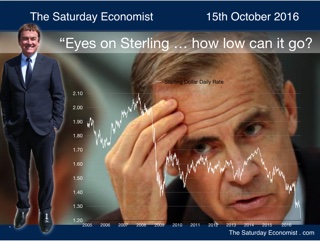 Sterling closed at $1.22 against the dollar this week. Why is Sterling falling? That's easy! More sellers than buyers the simple answer. Cause of death - stopped breathing, the autopsy report. More detail required. So here goes. Sterling is in play. With futures and derivatives speculating to the downside. The bears are out to play and are having fun. Central bankers have learned to stay out of the woods at picnic time. Sterling hasn't been so low against the Dollar, since December 1984, pushing on to near parity within months. The currency rallied towards the end of the decade as the Bank of England hiked base rates to slow an overheating economy. Sterling pushed higher back towards $2.00 within a few years. In the eighties of course, the Chancellor of the Exchequer determined interest rate policy. It is different now. The Bank of England has the mandate. A point the governor was anxious to assert this week. Mark Carney told an audience in Birmingham that he would not take instructions from politicians on how to do his job. Theresa May had been critical of monetary policy in general and QE specifically in recent weeks, a clear challenge to Bank of England independence. Closing at 1.10 against the Euro, the EU currency moved down against the dollar. The Fed is talking about a rate hike in December. The ECB shows no sign of a move. Short rate trends are against Sterling as we play "How low can it go". Short rates, money supply, inflation trends, capital flows, purchasing power parities, fundamental equilibrium exchange rates, lots of classical theories to model exchange rate moves. Nothing in the text books about Brexit and the potential loss of reserve currency status. Sterling is unloved by markets, abandoned by government and the central bank. And what of inflation ... Inflation is set to rise significantly and within months. The Bank of England model assumes currency depreciation impacts on inflation within a two to three year timescale. It is nonsense of course. Marmite, you may love it or hate it but the trade spat between Unilever and Tesco demonstrates the immediacy of translation of import costs into the CPI index. Oil price rises and the currency fall, will increase fuel price pressures by over 30% this quarter and by almost 80% in the first quarter next year. Manufacturing input costs already rising by 8%, will rise higher, pushing manufacturing output costs higher too. The feed though of petrol prices, commodity prices, food and beverages may push CPI inflation above 4% in the first quarter next year. The governor has suggested the MPC will "look through" any inflation rise to defend growth and jobs. Once the Fed begins to make the move to increase rates in the U.S. there may be little option. An what of depreciation? There is no benefit to the economy from a weakened currency. Import costs rise, increasing inflation with little or no price or substitution effect. Demand for imports is relatively inelastic with regard to price. They form a large component of exports in any case. The correlation between export and import growth is over 99%. As for exports, most exporters will price in currency and price to market. Margins are enhanced by depreciation, to offset rising costs. Price elasticity suggests a 10% fall in currency leads to a 6% increase in volume at best. There is no point changing currency prices. A falling currency is not good for U.K. business. For those pricing in Sterling, any volume thrill is extinguished by margin squeeze as costs rise. So what of construction ... Construction output increased by just 0.2% in August year on year. We expect little growth for the year as a whole. It really is a tale of two sectors. Private sector growth and public sector contraction. Nothing to do with Brexit as the ONS makes clear. Private sector housing activity increased by almost 10% in the month. Commercial real estate growth increased by almost 4%. The era of the £50k brickie has returned. Our "brickies cost per 000" index is rising to record highs, signalling price and earnings inflation in the housing sector. Private industrial work fell by 13%. It is a small component in the overall volume of activity perhaps demonstrating the weakness of manufacturing investment. The major falls in activity were in the public sector. Infrastructure activity fell by over 9%. Public sector housing fell by a similar amount. Nothing to do with Brexit. Tory austerity and spending cuts are to blame. There are little hopes of big infrastructure spending to be announced in the Autumn review. Shovels at the ready ... the construction sector awaits the call. So what happened to Markets? Markets, were mixed - The Dow closed at 18,212 from 18,195. The FTSE closed up at 7,044 from 6,899. Sterling fell against the Dollar to $1.220 from $1.246 and fell against the Euro to €1.110 from €1.115. The Euro fell against the Dollar to 1.099 from 1.117. Oil Price Brent Crude closed at $51.69 from $51.77 The average price in October last year was $48.43. Gilts - yields moved up. UK Ten year gilt yields closed at 1.10 from 0.97. US Treasury yields moved to 1.77 from 1.740. Gold closed at $1,251 from $1,314. John That's all for this week ... if you enjoy The Saturday Economist .. JOIN THE SATURDAY ECONOMIST CLUB as an INDIVIDUAL or CORPORATE member from just £40 a year. Check out the link for lots of options to get involved. Special reports, Survey Results and the Quarterly Economic Outlook are made available to members and sponsors. Join The Saturday Economist Club as an Individual or Corporate Member ... © 2016 John Ashcroft and Company, Economics, Strategy and Social Media, experience worth sharing. ______________________________________________________________________________________________________________ The material is based upon information which we consider to be reliable but we do not represent that it is accurate or complete and it should not be relied upon as such. We accept no liability for errors, or omissions of opinion or fact. In particular, no reliance should be placed on the comments on trends in financial markets. The receipt of this email should not be construed as the giving of advice relating to finance or investment.. ______________________________________________________________________________________________________________ If you do not wish to receive any further Saturday Economist updates, please unsubscribe using the buttons below or drop me an email at [email protected]. If you enjoy the content, why not forward to a friend, the can sign up here ... _______________________________________________________________________________________ For details of our Privacy Policy and our Terms and Conditions check out our main web site. John Ashcroft and Company.com _______________________________________________________________________________________________________________ Copyright © 2016 The Saturday Economist, All rights reserved. You are receiving this email as a member of the Saturday Economist Mailing List. You may have joined the list from Linkedin, Facebook Google+ or one of the related web sites. Our mailing address is: The Saturday Economist, Tower 12, Spinningfields,Manchester, Eng M3 3BZ, United Kingdom 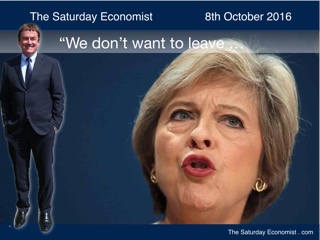 Business leaders have written to the prime minister. They don’t want a hard Brexit. Signatories to the letter included Carolyn Fairbairn, head of the CBI, Chris Southworth of the International Chambers of Commerce and Terry Scuoler, from the Engineering Employers’ Federation . Leaving the E.U without unfettered access to the single market would cause grievous damage. It should immediately be ruled out as an option” they said. “Government must make sure that the terms of the deal to leave the EU ensure stability, prosperity and improved living standards for all.” Quite so ... a deal which works for all the country! At a meeting this week in Manchester, business leaders met with The Right Honourable David Jones MP. David Jones was appointed Minister of State at the Department for Exiting the European Union in July this year. The event was organised by The Manchester Growth Company. It was clear from the meeting, there is little enthusiasm for a hard Brexit amongst manufacturers and many other sectors for that matter. And what of immigration ... Delegates were baffled by the statements made by Amber Rudd on immigration. Access to the single market with free movement of labour would be the preference amongst business. Listing of foreign workers, preference to home grown in the jobs market were considered to be undesirable developments in a free market structure. The minister expressed surprise about the strength of feeling in support of foreign workers in Manchester given “We are so far from the coast”. Excellent! With 100,000 students on campus in Manchester, the universities particularly fear for research, recruitment and caps on student numbers. The government is committed to reducing immigration to the tens of thousands, damaging the higher education industry and many other sectors in the process. Why not just take students out of the immigration stats they ask! A fair question from those so far from the coast. The room was silent when asked what are the opportunities arising from Brexit. Many businesses already trading around the world were baffled by the concept of “new worlds and new opportunities”. They already have a world map stuck on the wall. The ability to subsidise EU tariffs for Nissan, without being subject to state aid rules from Brussels, the most obvious perhaps. It is going to be a long haul to exit the EU, assuming Article 50 is triggered in March Sterling gets the finger ... Markets could not wait. Sterling was hammered as the Prime Minister outlined the plans for a hard “Brexit”, adherence to the near zero immigration target and criticism of QE and life on Planet ZIRP. Sterling fell to $1.246 against the dollar and €1.115 against the Euro. Fundamentals are moving against the currency but the Pound is in play. Technical support levels have been breached. It is open season to the downside unless the Bank begins to reverse stance on rates and soon. Trade and Manufacturing … The trade figures released on Friday didn’t help. Despite the depreciation of the currency the deficit trade in goods increased in August. No surprise there! For the year as a whole we expect the trade deficit to increase to £138 billion, up from £126 billion last year. The current account deficit over 5.5% of GDP is a real problem. Manufacturing figures continue to disappoint with growth on prior year in the month up by 0.5%. Good news from the PMI Markit series … PMI Markit Series … upbeat … The manufacturing PMI increased to the highest level since the middle of 2014. At 55.4 in September, growth in output, new orders and employment all strengthened. The service sector index, continues to bounce back from the post Brexit shock. New business increased at the fastest rate since February this year. At 52.6 the index remains in growth territory. The construction index, at 52.3 returned to growth in September. Residential and new orders generally showed a positive increase in the month. We expect the growth forecasts for the current year to be revised up to 2% following the post Brexit low. The outlook for next year remains positive, no need for the gloomy 1% growth outlook from the IMF and others. Outlook for inflation … Survey data confirms inflationary pressures are increasing. Oil Brent Crude closed at $51.77 a the end of the week. The average price in the final quarter last year was $44. At current prices (Oil and Sterling) inflationary pressures will increase by 50% over the quarter and by over 80% in the first quarter of next year. The CPI blip is coming, just in time for the pay round. A further rate cut is off the table. Rate hikes could be back on the agenda ere to long. Ten year gilts bounced back towards 100 basis points as gilt prices took a hit. The M&G Bond Vigilantes recommend a move to cash over gilts in move to force yields higher. So what happened to Markets? Markets, were mixed - The Dow closed at 18,195 from 18,337. The FTSE closed up at 7,044 from 6,899. Sterling fell against the Dollar to $1.246 from $1.297 and fell against the Euro to €1.115 from €1.154. The Euro was fell against the Dollar to 1.117 from 1.123. Oil Price Brent Crude closed at $51.77 from $49.05 The average price in October last year was $48.43. Gilts - yields moved up. UK Ten year gilt yields closed at 0.97 from 0.75. US Treasury yields moved to 1.740 from 1.590. Gold closed at $1,314 from $1,340. John That's all for this week ... if you enjoy The Saturday Economist .. JOIN THE SATURDAY ECONOMIST CLUB as an INDIVIDUAL or CORPORATE member. Check out the link for lots of options to get involved. Special reports, Survey Results and the Quarterly Economic Outlook are made available to members and sponsors. Plus priority booking for the quarterly events and discounts on the Economics Conference! Join and Save! Don't miss the Economics Conference in October. The Full Agenda - now released Join The Saturday Economist Club as an Individual or Corporate Member ... © 2016 John Ashcroft and Company, Economics, Strategy and Social Media, experience worth sharing. ______________________________________________________________________________________________________________ The material is based upon information which we consider to be reliable but we do not represent that it is accurate or complete and it should not be relied upon as such. We accept no liability for errors, or omissions of opinion or fact. In particular, no reliance should be placed on the comments on trends in financial markets. The receipt of this email should not be construed as the giving of advice relating to finance or investment.. ______________________________________________________________________________________________________________ ______________________________________________________________________________________________________________ Copyright © 2016 The Saturday Economist, All rights reserved. 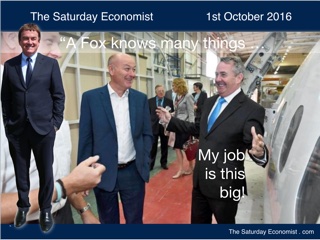 My Job is this big ... My Job is this big ... It is said, “A hedgehog knows one thing, a Fox knows many things”. Not sure how we know that. But what can be said of Liam Fox? Here is a man with a job, a title but as yet no start date. Liam Fox was in Manchester this week, making a speech to a collection of businessmen. He had carefully avoided Friday, with a late start and reinforced seating to ensure, lazy, fat golfers were fully accommodated. Was it a great speech? Not really. Adam Smith and the Corn Laws featured in an attempt to buff his credentials as both economist and historian. It was unconvincing and cliched. “Free trade is a ladder to the top, not a race to the bottom” “Negotiations will be bilateral, multilateral and plurilateral”. Yep "My job is this big" Our caption competition of the week! “We are in a post-geography trading world,” Dr Fox said, which reminded Patrick Kidd in The Times of swapping football stickers in the school playground during break. My personal favourite, “Today, we stand on the verge of an unprecedented ability to liberate global trade for the benefit of our whole planet with technological advances dissolving away the barriers of time and distance.” Excellent. There is a man with a big job on his hands. I hope the Three Brexiteers are up to the task. Nissan warns on investment ... Back in the real world, Nissan warned further investment in the North East would be on hold. The government must agree to compensate for any tariffs imposed, as a result of Brexit. Theresa May is scheduled to meet with Carlos Ghosn Chief Executive of Nissan, to persuade him not to scrap his investment plans. It will be an interesting conversation. Similar talks with others set to follow no doubt. The good news, government subsidies, to offset EU tariffs, would no longer be subject to Brussels rules and restrictions on state aid. There’s a Brexit benefit after all! Motor, aerospace and financial services are set to suffer in a post Brexit world but not for some time yet, or so we thought. Ralph Speth Chief Executive of Jaguar Land Rover warned at the Paris Motor Show this week, “They have the very first customers in their showrooms who clearly highlight they don’t want to buy British products any more”. Alarming? Not really. Why are they in the showroom in the first place? When the customer says no, the selling process begins Ralph. "It is not", Adam Smith wrote and Liam Fox reminded us, ”from the benevolence of the butcher, the brewer or the baker that we expect our dinner, but from their regard to their own interest". They’re just looking for a great deal! Balance of Payments ... Let’s face it, we need some great deals. The ONS released the latest Balance of Payments data this week. The UK’s current account deficit was £28.7 billion in the second quarter, up from a revised deficit £27.0 billion in Q1. The deficit at 5.7% and 5.9% of GDP is a developing problem for the UK economy. The deficit is incompatible with base rates at the zero bound. This year we expect the deficit trade in goods to be £138 billion up from £126 billion last year. The overall all deficit, trade in goods and services near £50 billion will equate to 2.5% of GDP. The structural trade problems of the U.K. economy will be exacerbated in a world post Brexit. Depreciation as we have long argued is no solution. Some may claim the effects (of depreciation or devaluation) impact over the longer term. Perhaps, but experience over the last eight years has not been convincing. Growth - GDP Data … Better news in the GDP figures updated this week. Growth in the second quarter was 2.1% compared to 1.9% in the first quarter. Household spending increased by 3%. 3% growth in exports was offset by the 4.7% growth in imports. Manufacturing and construction continue to disappoint, growth in services, particularly leisure services are driving the recovery. Distribution, hotels and leisure growth increased by 5%. Consumer confidence increased to pre Brexit levels in September according to the GfK latest data. Service sector growth continued into July, up by almost 3% year on year. The young pound continued to party. Leisure service growth increased by 4.9%. Forecasts for the current year will be revised up to 2%. There is no real reason to anticipate a slowdown next year and no real reason to cut rates further. Time to follow the Fed in raising rates. Abandon the corporate bond purchase scheme. The UK economy, not yet overheating, is warming up nicely. The balance of payments is a real problem, inflation is set to rise. Oil Brent Crude closed at $49 dollars this week. The average price in the final quarter last year was below $44 dollars. The average price in the first quarter of the current year was $34 dollars. In Sterling terms oil prices will be 35% high in the final quarter and up by over 70% early next year. No time to slash rates to 0.1%. CPI inflation will rise in Q1 just in time for the pay round! So what happened to Markets? Markets, were on hold - The Dow closed at 18,337 from 18,320. The FTSE closed up at 6,899 from 6,099. Sterling held against the Dollar to $1.297 from $1.297 and held against the Euro at €1.154 from €1.155. The Euro was unchanged against the Dollar to 1.123. Oil Price Brent Crude closed at $49.05 from $45.99. The average price in October last year was $48.43. Gilts - yields moved up. UK Ten year gilt yields closed at 0.75 from 0.73. US Treasury yields moved to 1.590 from 1.620. Gold closed at $1,314 from $1,340. John That's all for this week ... if you enjoy The Saturday Economist .. JOIN THE SATURDAY ECONOMIST CLUB as an INDIVIDUAL or CORPORATE member. Check out the link for lots of options to get involved. Special reports, Survey Results and the Quarterly Economic Outlook are made available to members and sponsors. Plus priority booking for the quarterly events and discounts on the Economics Conference! Join and Save! Don't miss the Economics Conference in October. The Full Agenda - now released © 2016 John Ashcroft and Company, Economics, Strategy and Social Media, experience worth sharing. ______________________________________________________________________________________________________________ The material is based upon information which we consider to be reliable but we do not represent that it is accurate or complete and it should not be relied upon as such. We accept no liability for errors, or omissions of opinion or fact. In particular, no reliance should be placed on the comments on trends in financial markets. The receipt of this email should not be construed as the giving of advice relating to finance or investment.. |
The Saturday EconomistAuthorJohn Ashcroft publishes the Saturday Economist. Join the mailing list for updates on the UK and World Economy. Archives
July 2024
Categories
All
|
| The Saturday Economist |
The material is based upon information which we consider to be reliable but we do not represent that it is accurate or complete and it should not be relied upon as such. We accept no liability for errors, or omissions of opinion or fact. In particular, no reliance should be placed on the comments on trends in financial markets. The presentation should not be construed as the giving of investment advice.
|
The Saturday Economist, weekly updates on the UK economy.
Sign Up Now! Stay Up To Date! | Privacy Policy | Terms and Conditions | |
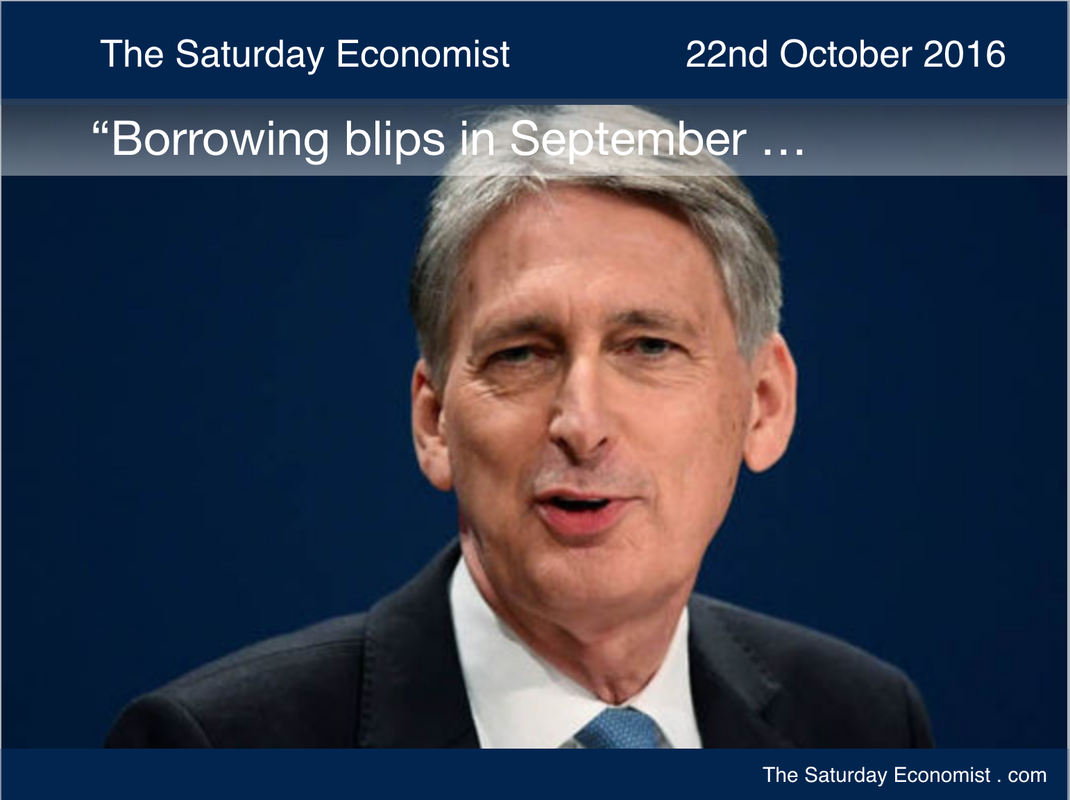
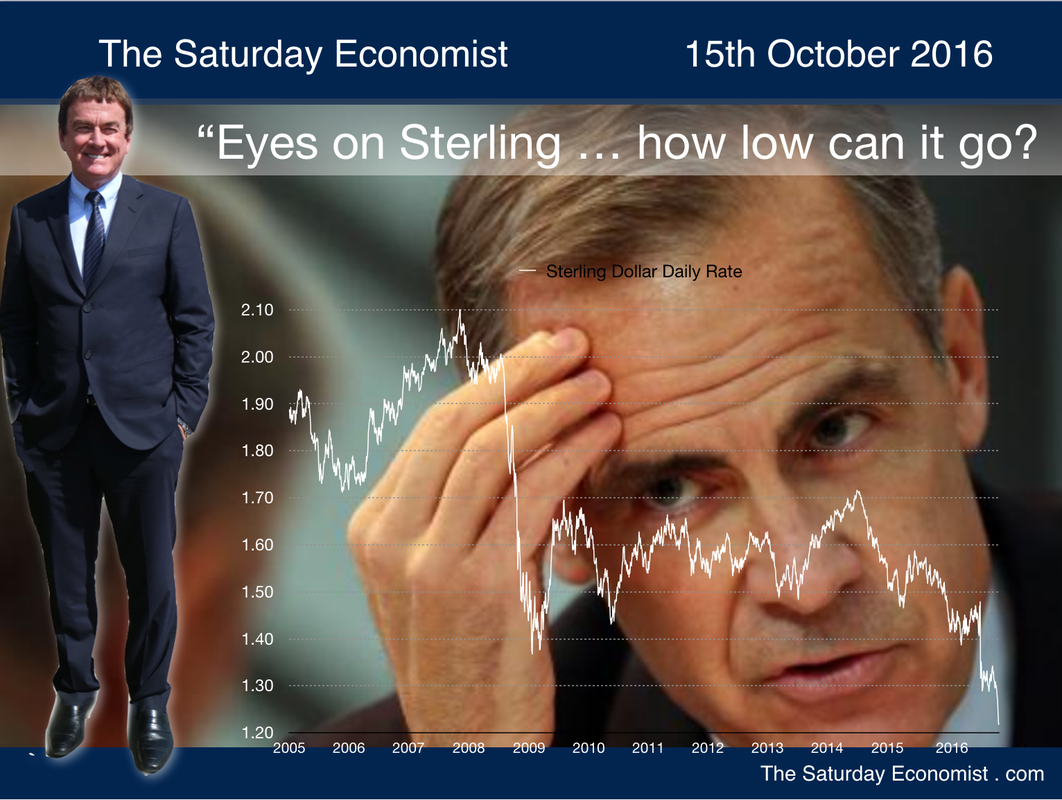
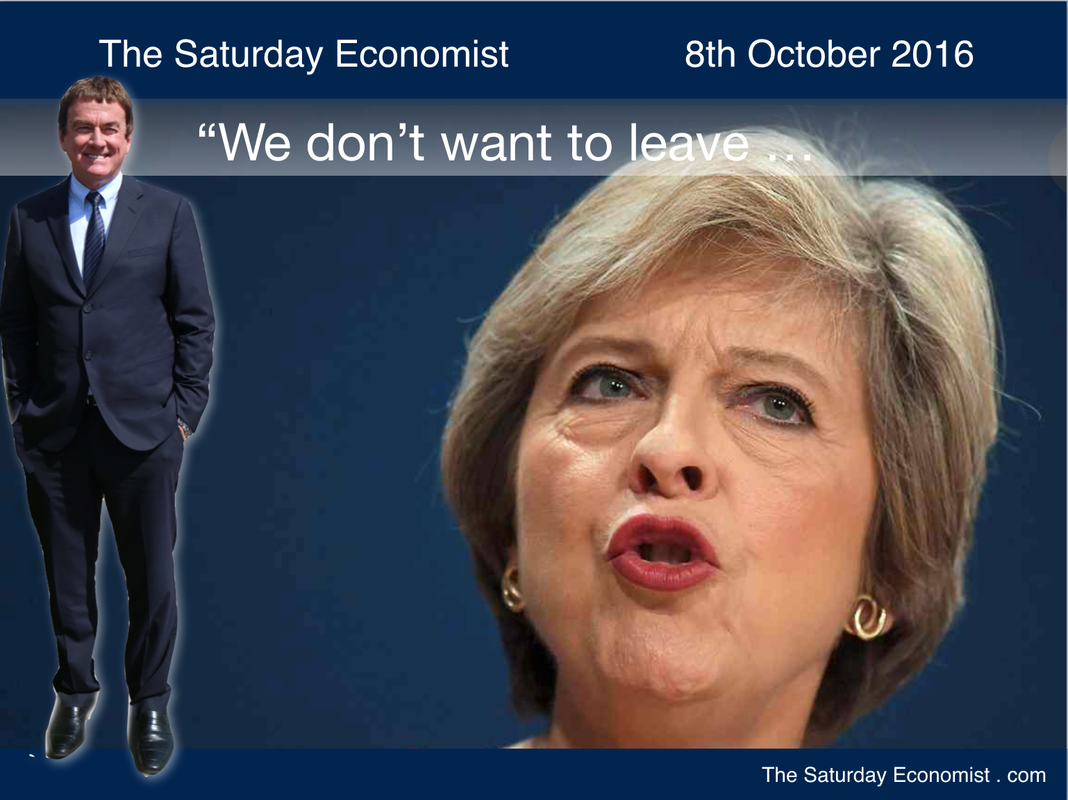
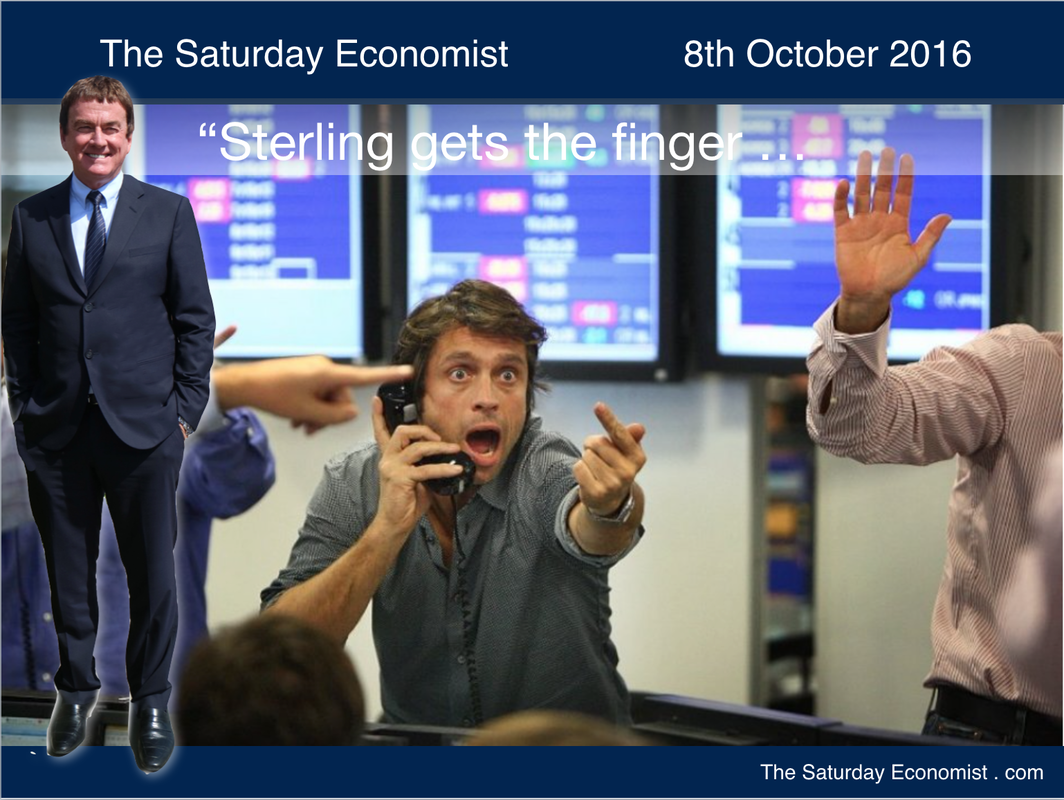
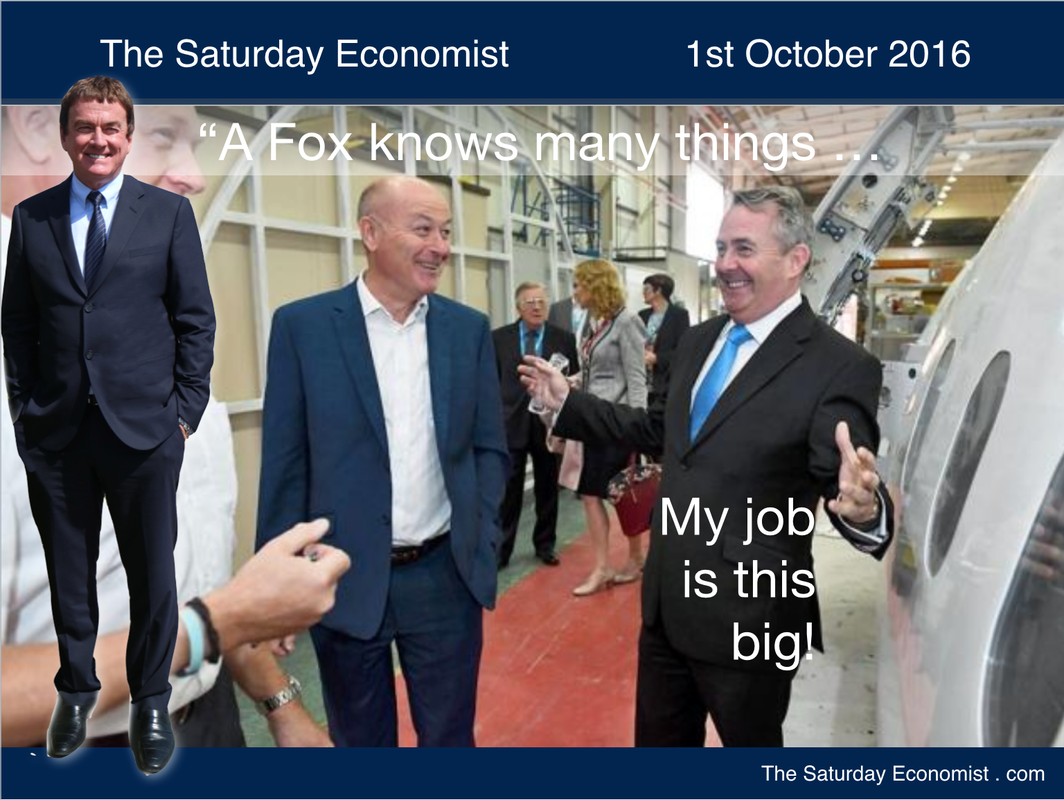
 RSS Feed
RSS Feed